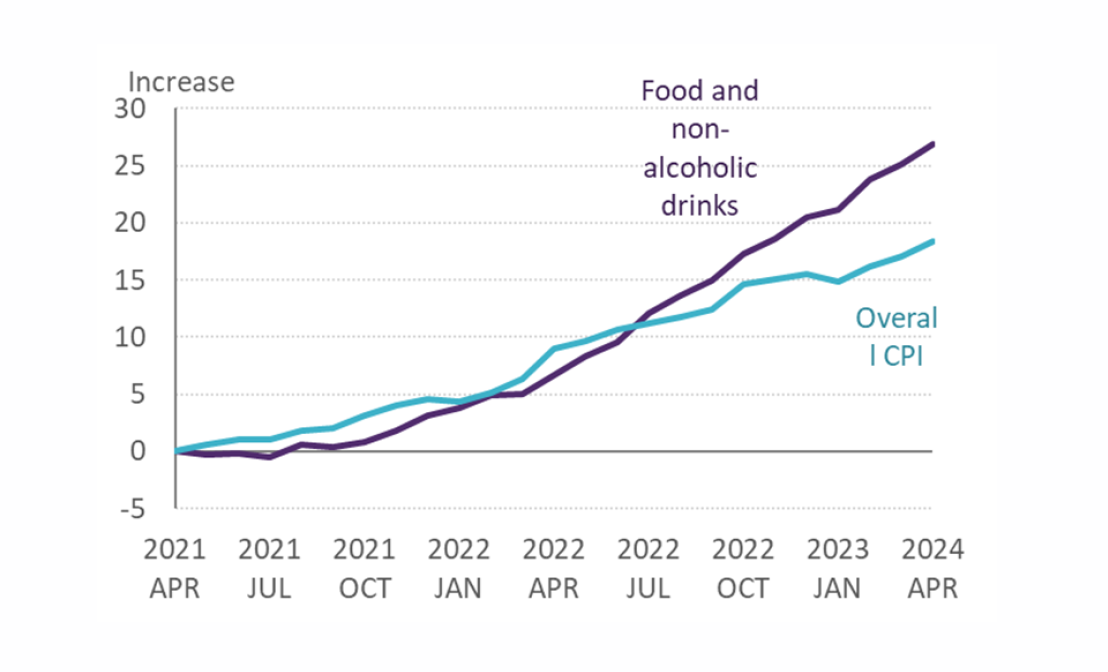Sky-high food price inflation shows the corner hasn't been turned for struggling families
Inflation has fallen today but new JRF analysis shows that since inflation began to rise in April 2021, costs have risen by almost a fifth in the last two years. Energy prices have more than doubled, and food prices have increased by over a quarter.
Responding to new monthly inflation figures, JRF senior economist Rachelle Earwaker said:
“The headline rate of inflation may have fallen but that will offer little comfort to the millions of households struggling with the sky-high cost of living. Falling inflation does not translate to lower prices either – higher costs are now baked in.
“Most concerningly there has been no fall in annual food price inflation, which is running at an eye-watering 19%. The cost of food has been consistently increasing for 18 months, with dire consequences: millions of families on low incomes are going hungry, unable to afford regular, healthy meals. This is not just a crisis right now – without action it will have an impact on our nation’s health long into the future. Are we really ok with this becoming the norm?
“Almost 9 in 10 families on Universal Credit cannot afford basic items like food and clothing. For them, inflation falling back towards the Bank of England’s target doesn’t suddenly make costs manageable. The Government must ensure that benefits always cover the cost of essentials – sporadic, short-term support packages are not enough.”

This news article is part of the cost of living topic.
Find out more about our work in this area.
